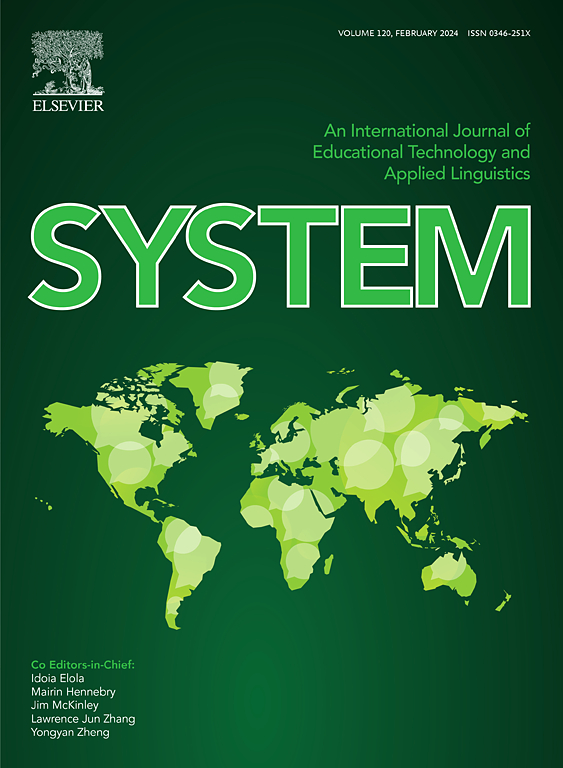Limosilactobacillus reuteri SXDT-32-derived shikimic acid protects against colonic inflammation in piglets by inhibiting the PI3K-Akt pathway
IF 6.5
1区 农林科学
Q1 Agricultural and Biological Sciences
引用次数: 0
Abstract
Colitis caused by bacterial infection is a major global health challenge. Unfortunately, current treatment options are limited. We previously disclosed that L. reuteri SXDT-32 was enriched in the feces of an ancient diarrhea-resistant pig breed (Mashen pig) in China over 2500 years old. As diarrhea is often closely associated with intestinal inflammation, L. reuteri SXDT-32 was identified as a potential beneficial bacterium to prevent intestinal inflammation. However, the precise mechanisms involved remained unclear. Our tests showed that L. reuteri SXDT-32 alleviated colonic damage induced by pathogenic E. coli SKLAN202302 in weaned pigs by enhancing barrier integrity and inhibiting inflammation. The transcriptomics revealed that L. reuteri SXDT-32 protected against inflammatory injury by inhibiting the PI3K-AKT signaling pathway. Metabolite analysis indicated that the content of shikimic acid (SA) was substantially elevated in the colonic mucosa of L. reuteri SXDT-32-fed piglets (P < 0.05). In addition, Liquid Chromatography-Mass Spectrometer (LC-MS) analysis showed significant increases in SA content in both the colonic chyme of L. reuteri SXDT-32-fed piglets and the supernatant of in vitro grown cultures of L. reuteri SXDT-32 (P < 0.05). Polymerase chain reaction (PCR) analysis identified gene aroE from L. reuteri SXDT-32, which is a key gene directly linked to SA synthesis, and elevated shikimate dehydrogenase (SD, encoded by aroE) was also detected in both L. reuteri SXDT-32 and the colonic mucosa of piglets fed L. reuteri SXDT-32 (P < 0.01). In vitro Caco-2 cell experiments demonstrated that SA, L. reuteri SXDT-32, and the supernatant from in vitro grown cultures of L. reuteri SXDT-32 exhibited comparable inhibitory effects on the PI3K-Akt pathway to those of the PI3K inhibitor LY294002. L. reuteri SXDT-32 alleviated intestinal inflammation in piglets by producing SA that inhibits the PI3K-Akt pathway. This study provides an innovative approach for the treatment and prevention of colitis caused by bacterial infection.罗伊氏乳酸杆菌sxdt -32衍生的莽草酸通过抑制PI3K-Akt通路保护仔猪结肠炎症
细菌感染引起的结肠炎是一项重大的全球卫生挑战。不幸的是,目前的治疗方案有限。我们之前披露,在2500多年前的中国古代抗腹泻猪品种(马申猪)的粪便中富集了罗伊氏乳杆菌SXDT-32。由于腹泻往往与肠道炎症密切相关,罗伊氏乳杆菌SXDT-32被认为是预防肠道炎症的潜在有益菌。然而,其中的确切机制尚不清楚。我们的实验表明,罗伊氏乳杆菌SXDT-32通过增强屏障完整性和抑制炎症来减轻致病性大肠杆菌SKLAN202302对断奶仔猪的结肠损伤。转录组学结果显示,罗伊氏乳杆菌SXDT-32通过抑制PI3K-AKT信号通路来保护炎症损伤。代谢物分析结果显示,饲粮中添加了罗伊氏乳杆菌sxdt -32的仔猪结肠黏膜中莽草酸(SA)含量显著升高(P < 0.05)。此外,液相色谱-质谱(LC-MS)分析显示,饲喂罗伊氏乳杆菌SXDT-32的仔猪结肠食糜和体外培养的罗伊氏乳杆菌SXDT-32上清液中SA含量均显著升高(P < 0.05)。聚合酶链式反应(PCR)鉴定出罗伊氏乳杆菌SXDT-32中与SA合成直接相关的关键基因aroE,在罗伊氏乳杆菌SXDT-32和饲用罗伊氏乳杆菌SXDT-32的仔猪结肠黏膜中均检测到shikimate脱氢酶(SD,由aroE编码)升高(P < 0.01)。体外Caco-2细胞实验表明,SA、罗伊氏乳杆菌SXDT-32和罗伊氏乳杆菌SXDT-32体外培养的上清液对PI3K- akt通路的抑制作用与PI3K抑制剂LY294002相当。罗伊氏乳杆菌SXDT-32通过产生抑制PI3K-Akt通路的SA减轻仔猪肠道炎症。本研究为细菌感染引起的结肠炎的治疗和预防提供了一种创新的方法。
本文章由计算机程序翻译,如有差异,请以英文原文为准。
求助全文
约1分钟内获得全文
求助全文
来源期刊

Journal of Animal Science and Biotechnology
AGRICULTURE, DAIRY & ANIMAL SCIENCE-
CiteScore
9.90
自引率
2.90%
发文量
822
审稿时长
17 weeks
期刊介绍:
Journal of Animal Science and Biotechnology is an open access, peer-reviewed journal that encompasses all aspects of animal science and biotechnology. That includes domestic animal production, animal genetics and breeding, animal reproduction and physiology, animal nutrition and biochemistry, feed processing technology and bioevaluation, animal biotechnology, and meat science.
 求助内容:
求助内容: 应助结果提醒方式:
应助结果提醒方式:


